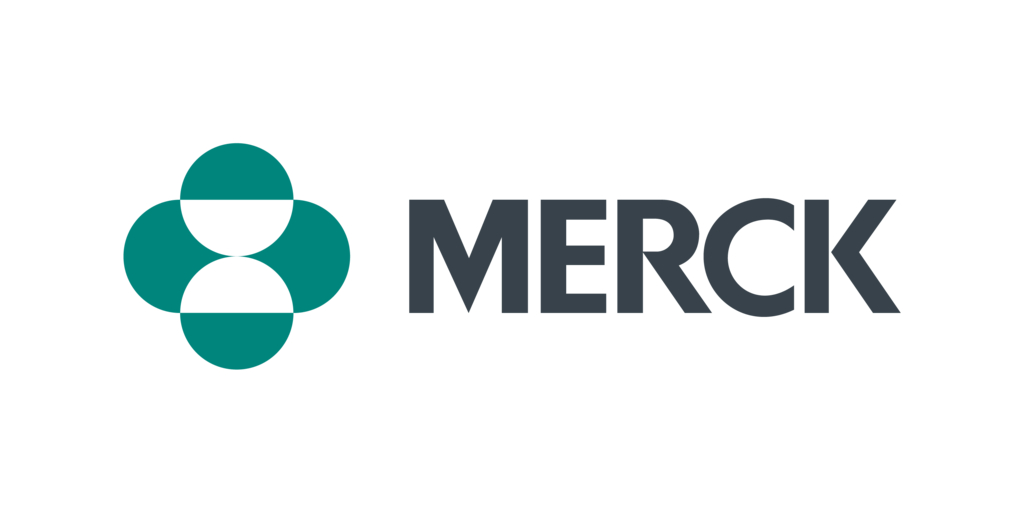New research across a broad range of hematologic malignancies to be featured during the meeting, including presentations for investigational assets zilovertamab vedotin and nemtabrutinib
RAHWAY, N.J.--(BUSINESS WIRE)--$MRK #MRK--Merck (NYSE: MRK), known as MSD outside of the United States and Canada, today announced that new data for approved and investigational medicines across multiple hematologic malignancies will be presented at the American Society of Hematology (ASH) Annual Meeting and Exposition in San Diego from Dec. 7-10. Data being shared at the meeting will showcase the company’s continued progress in advancing clinical research for Merck’s expanding and diverse pipeline of investigational candidates, with more than 20 abstracts being presented.
“The innovative research that will be presented at this year’s ASH highlights our robust clinical development program and our commitment to exploring novel modalities and therapeutic targets, as we work to improve outcomes and address unmet needs for people with hematologic neoplasms and malignancies,” said Dr. Marjorie Green, senior vice president and head of oncology, global clinical development, Merck Research Laboratories. “In particular, we’re pleased to share our research evaluating the impact of our investigational antibody-drug conjugate for the treatment of patients with diffuse large B-cell lymphoma, the most common form of non-Hodgkin lymphoma.”
Data presentations will feature candidates from Merck’s pipeline, including for: zilovertamab vedotin (MK-2140), an investigational antibody-drug conjugate (ADC) that targets receptor tyrosine kinase-like orphan receptor 1 (ROR1); nemtabrutinib (MK-1026), an investigational, non-covalent Bruton’s tyrosine kinase (BTK) inhibitor; and bomedemstat (MK-3543), an investigational orally available lysine-specific demethylase 1 (LSD1) inhibitor. Additionally, new and updated results for KEYTRUDA® (pembrolizumab), Merck’s anti-PD-1 therapy, will be presented.
Key data from Merck’s portfolio and pipeline to be presented at the 2024 ASH Annual Meeting and Exposition:
- First presentation of results from the Phase 2 waveLINE-007 dose escalation study evaluating the safety and efficacy of zilovertamab vedotin in combination with cyclophosphamide, doxorubicin and prednisone plus rituximab in patients with diffuse large B-cell lymphoma (DLBCL) with no prior treatment (Abstract #578)
- First-time results from the Phase 2 waveLINE-006 cohort C study evaluating zilovertamab vedotin in combination with nemtabrutinib for patients with relapsed or refractory mantle cell lymphoma (Abstract #3025)
- First-time Phase 2 data presentation from the BELLWAVE-003 study evaluating nemtabrutinib in relapsed or refractory follicular lymphoma (Abstract #1634)
- Updated results from the Phase 2 KEYNOTE-667 study evaluating KEYTRUDA in children, adolescents and young adults with low-risk classic Hodgkin lymphoma (cHL) and slow early response to front-line chemotherapy (Abstract #462)
Details on abstracts listed above and additional key abstracts for Merck
Classical Hodgkin lymphoma | |
Pembrolizumab in children, adolescents, and young adults with low-risk classic Hodgkin lymphoma (cHL) and slow early response to front-line chemotherapy: updated results from the Phase 2 KEYNOTE-667 study. L. G. Roth. | Abstract #462, Oral session, Hodgkin lymphomas: clinical and epidemiological: potentially practice-changing trials in Hodgkin lymphoma |
Pembrolizumab in children, adolescents, and young adults with high-risk classic Hodgkin lymphoma (cHL) with slow early response to front-line chemotherapy: updated results from the Phase 2 KEYNOTE-667 study. C. Mauz-Koerholz. | Abstract #3055, Poster session II, Hodgkin lymphomas: clinical and epidemiological |
Efficacy and safety of pembrolizumab every six weeks in relapsed/refractory classical Hodgkin lymphoma or primary mediastinal B-cell lymphoma: KEYNOTE-B68 update. A. B. McDonald. | Abstract #3046, Poster session II, Hodgkin lymphomas: clinical and epidemiological |
Diffuse large B-cell lymphoma | |
WaveLINE-007: dose escalation and confirmation, and efficacy expansion trial of zilovertamab vedotin in combination with cyclophosphamide, doxorubicin, and prednisone plus rituximab in patients with diffuse large B-cell lymphoma. M. Ozcan. | Abstract #578, Oral session, Aggressive lymphomas: pharmacologic therapies: new R-CHOP combinations for treatment naïve DLBCL
|
Updated results from the Phase 2 waveLINE-004 study of zilovertamab vedotin in relapsed or refractory diffuse large B-cell lymphoma. L. Norasetthada. | Abstract #1738, Poster session I, Aggressive lymphomas: pharmacologic therapies |
Follicular lymphoma | |
Nemtabrutinib, a noncovalent reversible BTK inhibitor in relapsed or refractory follicular lymphoma: results from the Phase 2 BELLWAVE-003 study. W. Jurczak. | Abstract #1634, Poster session I, Mantle cell, follicular, Waldenstrom’s, and other indolent B-cell lymphomas: clinical and epidemiological |
Mantle cell lymphoma | |
Zilovertamab vedotin in combination with nemtabrutinib for patients with relapsed or refractory mantle cell lymphoma: cohort C of the open-label, Phase 2 waveLINE-006 study. E. Paszkiewicz-Kozik. | Abstract #3025, Poster session II, Mantle cell, follicular, Waldenstrom’s, and other indolent B-cell lymphomas: clinical and epidemiological |
Zilovertamab vedotin monotherapy for patients with relapsed or refractory mantle cell lymphoma: cohort A of the multicenter, open-label, Phase 2 waveLINE-006 study. I. Glimelius. | Abstract #4405, Poster session III, Mantle cell, follicular, Waldenstrom’s, and other indolent B-cell lymphomas: clinical and epidemiological |
Marginal zone lymphoma | |
Nemtabrutinib, a noncovalent reversible BTK inhibitor in relapsed or refractory marginal zone lymphoma: results from the Phase 2 BELLWAVE-003 study. P. L. Zinzani. | Abstract #3016, Poster session II, Mantle cell, follicular, Waldenstrom’s, and other indolent B-cell lymphomas: clinical and epidemiological |
About Merck in hematology
Merck is committed to advancing innovation and care for people with hematologic neoplasms and malignancies. Building on its leadership in oncology, the company has a broad clinical development program that evaluates novel mechanisms of action to address longstanding unmet needs for patients with hematologic disorders. Among Merck’s research efforts are studies evaluating multiple investigational medicines as monotherapy or in combination with other therapies across a range of hematologic neoplasms and malignancies.
About zilovertamab vedotin (MK-2140)
Zilovertamab vedotin is an investigational ADC that targets ROR1. ROR1 is a transmembrane protein that is overexpressed in multiple hematologic malignancies. Merck is committed to research with zilovertamab vedotin across B-cell malignancies and is establishing a robust program of clinical trials under the name waveLINE. The waveLINE program includes a Phase 2/3 study in patients with relapsed or refractory DLBCL (waveLINE-003, NCT05139017) and a Phase 3 study in treatment naïve patients with DLBCL (waveLINE-010).
About nemtabrutinib (MK-1026)
Nemtabrutinib is an investigational oral, non-covalent BTK inhibitor that suppresses oncogenic B-cell receptor signaling with activity against wild-type BTK and BTK pathway mutants. Nemtabrutinib aims to address a common mechanism of resistance with currently available covalent, irreversible BTK inhibitors by binding in an alternative way to the BTK protein. Merck is committed to research with nemtabrutinib across B-cell malignancies and is establishing a robust program of clinical trials under the name BELLWAVE. Two Phase 3 studies are currently underway, including one in patients with previously untreated chronic lymphocytic leukemia (CLL) and small lymphocytic lymphoma (SLL) without TP53 aberrations (BELLWAVE-008, NCT05624554) and a study evaluating nemtabrutinib versus investigator’s choice of BTK inhibitors, ibrutinib or acalabrutinib, in patients with previously untreated CLL and SLL (BELLWAVE-011, NCT06136559).
About bomedemstat (MK-3543)
Bomedemstat (MK-3543) is an investigational small molecule, irreversible LSD1 inhibitor being developed by Merck. LSD1 regulates the proliferation of hematopoietic stem cells, playing an essential role in cell differentiation and maturation. Bomedemstat is being evaluated in a wide range of myeloproliferative neoplasms, including essential thrombocythemia, myelofibrosis and polycythemia vera. Two Phase 3 studies are currently underway, including one evaluating bomedemstat compared to best available therapy as treatment in patients with essential thrombocythemia who have an inadequate response to or are intolerant of hydroxyurea (Shorespan-006, NCT06079879) and a study evaluating bomedemstat compared to the current standard of care chemotherapy, hydroxyurea, for treatment of patients with essential thrombocythemia who have previously not received cytoreductive therapy (Shorespan-007, NCT06456346).
About KEYTRUDA® (pembrolizumab) injection, 100 mg
KEYTRUDA is an anti-programmed death receptor-1 (PD-1) therapy that works by increasing the ability of the body’s immune system to help detect and fight tumor cells. KEYTRUDA is a humanized monoclonal antibody that blocks the interaction between PD-1 and its ligands, PD-L1 and PD-L2, thereby activating T lymphocytes which may affect both tumor cells and healthy cells.
Merck has the industry’s largest immuno-oncology clinical research program. There are currently more than 1,600 trials studying KEYTRUDA across a wide variety of cancers and treatment settings. The KEYTRUDA clinical program seeks to understand the role of KEYTRUDA across cancers and the factors that may predict a patient’s likelihood of benefitting from treatment with KEYTRUDA, including exploring several different biomarkers.
Selected KEYTRUDA® (pembrolizumab) Indications in the U.S.
Classical Hodgkin Lymphoma
KEYTRUDA is indicated for the treatment of adult patients with relapsed or refractory classical Hodgkin lymphoma (cHL).
KEYTRUDA is indicated for the treatment of pediatric patients with refractory cHL, or cHL that has relapsed after 2 or more lines of therapy.
Primary Mediastinal Large B-Cell Lymphoma
KEYTRUDA is indicated for the treatment of adult and pediatric patients with refractory primary mediastinal large B-cell lymphoma (PMBCL), or who have relapsed after 2 or more prior lines of therapy. KEYTRUDA is not recommended for treatment of patients with PMBCL who require urgent cytoreductive therapy.
See additional selected KEYTRUDA indications in the U.S. after the Selected Important Safety Information.
Selected Important Safety Information for KEYTRUDA
Severe and Fatal Immune-Mediated Adverse Reactions
KEYTRUDA is a monoclonal antibody that belongs to a class of drugs that bind to either the programmed death receptor-1 (PD-1) or the programmed death ligand 1 (PD-L1), blocking the PD-1/PD-L1 pathway, thereby removing inhibition of the immune response, potentially breaking peripheral tolerance and inducing immune-mediated adverse reactions. Immune-mediated adverse reactions, which may be severe or fatal, can occur in any organ system or tissue, can affect more than one body system simultaneously, and can occur at any time after starting treatment or after discontinuation of treatment. Important immune-mediated adverse reactions listed here may not include all possible severe and fatal immune-mediated adverse reactions.
Monitor patients closely for symptoms and signs that may be clinical manifestations of underlying immune-mediated adverse reactions. Early identification and management are essential to ensure safe use of anti–PD-1/PD-L1 treatments. Evaluate liver enzymes, creatinine, and thyroid function at baseline and periodically during treatment. For patients with TNBC treated with KEYTRUDA in the neoadjuvant setting, monitor blood cortisol at baseline, prior to surgery, and as clinically indicated. In cases of suspected immune-mediated adverse reactions, initiate appropriate workup to exclude alternative etiologies, including infection. Institute medical management promptly, including specialty consultation as appropriate.
Withhold or permanently discontinue KEYTRUDA depending on severity of the immune-mediated adverse reaction. In general, if KEYTRUDA requires interruption or discontinuation, administer systemic corticosteroid therapy (1 to 2 mg/kg/day prednisone or equivalent) until improvement to Grade 1 or less. Upon improvement to Grade 1 or less, initiate corticosteroid taper and continue to taper over at least 1 month. Consider administration of other systemic immunosuppressants in patients whose adverse reactions are not controlled with corticosteroid therapy.
Immune-Mediated Pneumonitis
KEYTRUDA can cause immune-mediated pneumonitis. The incidence is higher in patients who have received prior thoracic radiation. Immune-mediated pneumonitis occurred in 3.4% (94/2799) of patients receiving KEYTRUDA, including fatal (0.1%), Grade 4 (0.3%), Grade 3 (0.9%), and Grade 2 (1.3%) reactions. Systemic corticosteroids were required in 67% (63/94) of patients. Pneumonitis led to permanent discontinuation of KEYTRUDA in 1.3% (36) and withholding in 0.9% (26) of patients. All patients who were withheld reinitiated KEYTRUDA after symptom improvement; of these, 23% had recurrence. Pneumonitis resolved in 59% of the 94 patients.
Pneumonitis occurred in 8% (31/389) of adult patients with cHL receiving KEYTRUDA as a single agent, including Grades 3-4 in 2.3% of patients. Patients received high-dose corticosteroids for a median duration of 10 days (range: 2 days to 53 months). Pneumonitis rates were similar in patients with and without prior thoracic radiation. Pneumonitis led to discontinuation of KEYTRUDA in 5.4% (21) of patients. Of the patients who developed pneumonitis, 42% interrupted KEYTRUDA, 68% discontinued KEYTRUDA, and 77% had resolution.
Pneumonitis occurred in 7% (41/580) of adult patients with resected NSCLC who received KEYTRUDA as a single agent for adjuvant treatment of NSCLC, including fatal (0.2%), Grade 4 (0.3%), and Grade 3 (1%) adverse reactions. Patients received high-dose corticosteroids for a median duration of 10 days (range: 1 day to 2.3 months). Pneumonitis led to discontinuation of KEYTRUDA in 26 (4.5%) of patients. Of the patients who developed pneumonitis, 54% interrupted KEYTRUDA, 63% discontinued KEYTRUDA, and 71% had resolution.
Immune-Mediated Colitis
KEYTRUDA can cause immune-mediated colitis, which may present with diarrhea. Cytomegalovirus infection/reactivation has been reported in patients with corticosteroid-refractory immune-mediated colitis. In cases of corticosteroid-refractory colitis, consider repeating infectious workup to exclude alternative etiologies. Immune-mediated colitis occurred in 1.7% (48/2799) of patients receiving KEYTRUDA, including Grade 4 (<0.1%), Grade 3 (1.1%), and Grade 2 (0.4%) reactions. Systemic corticosteroids were required in 69% (33/48); additional immunosuppressant therapy was required in 4.2% of patients. Colitis led to permanent discontinuation of KEYTRUDA in 0.5% (15) and withholding in 0.5% (13) of patients. All patients who were withheld reinitiated KEYTRUDA after symptom improvement; of these, 23% had recurrence. Colitis resolved in 85% of the 48 patients.
Hepatotoxicity and Immune-Mediated Hepatitis
KEYTRUDA as a Single Agent
KEYTRUDA can cause immune-mediated hepatitis. Immune-mediated hepatitis occurred in 0.7% (19/2799) of patients receiving KEYTRUDA, including Grade 4 (<0.1%), Grade 3 (0.4%), and Grade 2 (0.1%) reactions. Systemic corticosteroids were required in 68% (13/19) of patients; additional immunosuppressant therapy was required in 11% of patients. Hepatitis led to permanent discontinuation of KEYTRUDA in 0.2% (6) and withholding in 0.3% (9) of patients. All patients who were withheld reinitiated KEYTRUDA after symptom improvement; of these, none had recurrence. Hepatitis resolved in 79% of the 19 patients.
KEYTRUDA With Axitinib
KEYTRUDA in combination with axitinib can cause hepatic toxicity. Monitor liver enzymes before initiation of and periodically throughout treatment. Consider monitoring more frequently as compared to when the drugs are administered as single agents. For elevated liver enzymes, interrupt KEYTRUDA and axitinib, and consider administering corticosteroids as needed. With the combination of KEYTRUDA and axitinib, Grades 3 and 4 increased alanine aminotransferase (ALT) (20%) and increased aspartate aminotransferase (AST) (13%) were seen at a higher frequency compared to KEYTRUDA alone. Fifty-nine percent of the patients with increased ALT received systemic corticosteroids. In patients with ALT ≥3 times upper limit of normal (ULN) (Grades 2-4, n=116), ALT resolved to Grades 0-1 in 94%. Among the 92 patients who were rechallenged with either KEYTRUDA (n=3) or axitinib (n=34) administered as a single agent or with both (n=55), recurrence of ALT ≥3 times ULN was observed in 1 patient receiving KEYTRUDA, 16 patients receiving axitinib, and 24 patients receiving both. All patients with a recurrence of ALT ≥3 ULN subsequently recovered from the event.
Immune-Mediated Endocrinopathies
Adrenal Insufficiency
KEYTRUDA can cause primary or secondary adrenal insufficiency. For Grade 2 or higher, initiate symptomatic treatment, including hormone replacement as clinically indicated. Withhold KEYTRUDA depending on severity. Adrenal insufficiency occurred in 0.8% (22/2799) of patients receiving KEYTRUDA, including Grade 4 (<0.1%), Grade 3 (0.3%), and Grade 2 (0.3%) reactions. Systemic corticosteroids were required in 77% (17/22) of patients; of these, the majority remained on systemic corticosteroids. Adrenal insufficiency led to permanent discontinuation of KEYTRUDA in <0.1% (1) and withholding in 0.3% (8) of patients. All patients who were withheld reinitiated KEYTRUDA after symptom improvement.
Hypophysitis
KEYTRUDA can cause immune-mediated hypophysitis. Hypophysitis can present with acute symptoms associated with mass effect such as headache, photophobia, or visual field defects. Hypophysitis can cause hypopituitarism. Initiate hormone replacement as indicated. Withhold or permanently discontinue KEYTRUDA depending on severity. Hypophysitis occurred in 0.6% (17/2799) of patients receiving KEYTRUDA, including Grade 4 (<0.1%), Grade 3 (0.3%), and Grade 2 (0.2%) reactions. Systemic corticosteroids were required in 94% (16/17) of patients; of these, the majority remained on systemic corticosteroids. Hypophysitis led to permanent discontinuation of KEYTRUDA in 0.1% (4) and withholding in 0.3% (7) of patients. All patients who were withheld reinitiated KEYTRUDA after symptom improvement.
Thyroid Disorders
KEYTRUDA can cause immune-mediated thyroid disorders. Thyroiditis can present with or without endocrinopathy. Hypothyroidism can follow hyperthyroidism. Initiate hormone replacement for hypothyroidism or institute medical management of hyperthyroidism as clinically indicated. Withhold or permanently discontinue KEYTRUDA depending on severity. Thyroiditis occurred in 0.6% (16/2799) of patients receiving KEYTRUDA, including Grade 2 (0.3%). None discontinued, but KEYTRUDA was withheld in <0.1% (1) of patients.
Hyperthyroidism occurred in 3.4% (96/2799) of patients receiving KEYTRUDA, including Grade 3 (0.1%) and Grade 2 (0.8%). It led to permanent discontinuation of KEYTRUDA in <0.1% (2) and withholding in 0.3% (7) of patients. All patients who were withheld reinitiated KEYTRUDA after symptom improvement. Hypothyroidism occurred in 8% (237/2799) of patients receiving KEYTRUDA, including Grade 3 (0.1%) and Grade 2 (6.2%). It led to permanent discontinuation of KEYTRUDA in <0.1% (1) and withholding in 0.5% (14) of patients. All patients who were withheld reinitiated KEYTRUDA after symptom improvement. The majority of patients with hypothyroidism required long-term thyroid hormone replacement. The incidence of new or worsening hypothyroidism was higher in 1185 patients with HNSCC, occurring in 16% of patients receiving KEYTRUDA as a single agent or in combination with platinum and FU, including Grade 3 (0.3%) hypothyroidism. The incidence of new or worsening hypothyroidism was higher in 389 adult patients with cHL (17%) receiving KEYTRUDA as a single agent, including Grade 1 (6.2%) and Grade 2 (10.8%) hypothyroidism. The incidence of new or worsening hyperthyroidism was higher in 580 patients with resected NSCLC, occurring in 11% of patients receiving KEYTRUDA as a single agent as adjuvant treatment, including Grade 3 (0.2%) hyperthyroidism. The incidence of new or worsening hypothyroidism was higher in 580 patients with resected NSCLC, occurring in 22% of patients receiving KEYTRUDA as a single agent as adjuvant treatment (KEYNOTE-091), including Grade 3 (0.3%) hypothyroidism.
Type 1 Diabetes Mellitus (DM), Which Can Present With Diabetic Ketoacidosis
Monitor patients for hyperglycemia or other signs and symptoms of diabetes. Initiate treatment with insulin as clinically indicated. Withhold KEYTRUDA depending on severity. Type 1 DM occurred in 0.2% (6/2799) of patients receiving KEYTRUDA. It led to permanent discontinuation in <0.1% (1) and withholding of KEYTRUDA in <0.1% (1) of patients. All patients who were withheld reinitiated KEYTRUDA after symptom improvement.
Immune-Mediated Nephritis With Renal Dysfunction
KEYTRUDA can cause immune-mediated nephritis. Immune-mediated nephritis occurred in 0.3% (9/2799) of patients receiving KEYTRUDA, including Grade 4 (<0.1%), Grade 3 (0.1%), and Grade 2 (0.1%) reactions. Systemic corticosteroids were required in 89% (8/9) of patients. Nephritis led to permanent discontinuation of KEYTRUDA in 0.1% (3) and withholding in 0.1% (3) of patients. All patients who were withheld reinitiated KEYTRUDA after symptom improvement; of these, none had recurrence. Nephritis resolved in 56% of the 9 patients.
Immune-Mediated Dermatologic Adverse Reactions
KEYTRUDA can cause immune-mediated rash or dermatitis. Exfoliative dermatitis, including Stevens-Johnson syndrome, drug rash with eosinophilia and systemic symptoms, and toxic epidermal necrolysis, has occurred with anti– PD-1/PD-L1 treatments. Topical emollients and/or topical corticosteroids may be adequate to treat mild to moderate nonexfoliative rashes. Withhold or permanently discontinue KEYTRUDA depending on severity. Immune-mediated dermatologic adverse reactions occurred in 1.4% (38/2799) of patients receiving KEYTRUDA, including Grade 3 (1%) and Grade 2 (0.1%) reactions. Systemic corticosteroids were required in 40% (15/38) of patients. These reactions led to permanent discontinuation in 0.1% (2) and withholding of KEYTRUDA in 0.6% (16) of patients. All patients who were withheld reinitiated KEYTRUDA after symptom improvement; of these, 6% had recurrence. The reactions resolved in 79% of the 38 patients.
Other Immune-Mediated Adverse Reactions
The following clinically significant immune-mediated adverse reactions occurred at an incidence of <1% (unless otherwise noted) in patients who received KEYTRUDA or were reported with the use of other anti–PD-1/PD-L1 treatments.
Contacts
Media Contacts:
Julie Cunningham
(617) 519-6264
Sienna Choi
(908) 873-4311
Investor Contacts:
Peter Dannenbaum
(732) 594-1579
Damini Chokshi
(732) 594-1577






